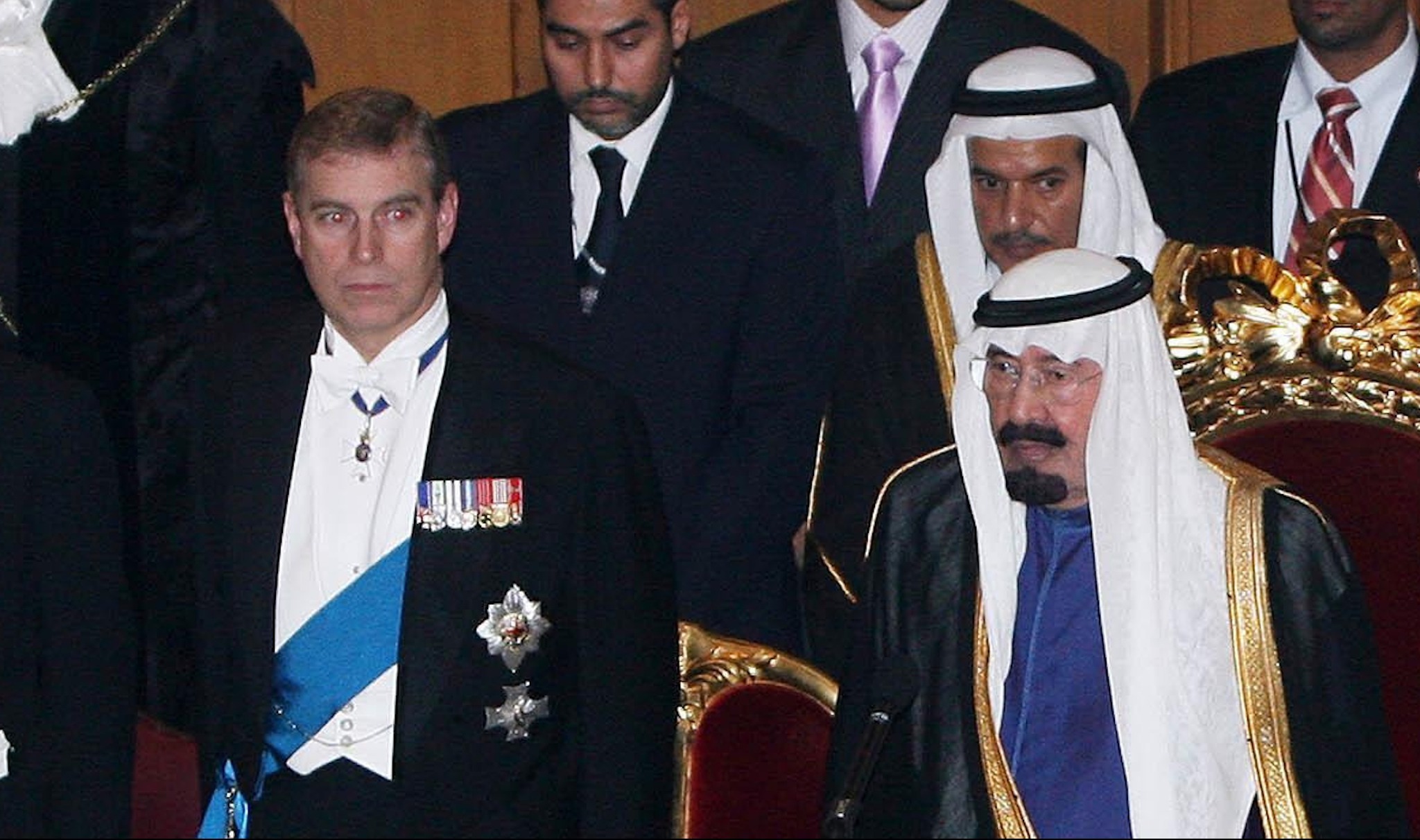Andrew, the Duke Of York, rushed to Jeddah in June 2012 to pay tribute to Crown Prince Nayef, who had passed away months after overseeing a brutal crackdown on Arab Spring protesters.
Among those arrested for organising demonstrations was 17-year-old Ali al-Nimr who would be sentenced to death by beheading and crucifixion.
Now a diplomatic telegram about Andrew’s visit has been obtained by Declassified through a freedom of information request to the Foreign Office.
Written by Britain’s then ambassador John Jenkins and heavily redacted to protect the UK’s relations with the Saudis, it says “our senior presence is well received by all” at the mourning ceremony.
Andrew’s visit occurred over a year after the scandal broke about his relationship with convicted paedophile Jeffrey Epstein in early 2011. Declassified previously revealed the British government promoted Andrew’s visits to the Gulf for eight years after the scandal caused his international notoriety.
Philip Hammond, then UK defence secretary, accompanied Andrew to the Red Sea port of Jeddah where they presented “condolences on behalf of the Royal Family and the Government to the new Crown Prince, Salman, in the presence of dozens of other senior princes.”
The names of these other Saudi princes are censored by the Foreign Office, to protect their privacy. There is no indication that Andrew raised human rights concerns with any of them.
Jenkins said: “There was only time for a few words with Salman himself, but HRH [Andrew] and Mr Hammond were then able to greet and condole many of these princes, on their way in and out of the condolence ceremony.”
“With most of the princes only short exchanges were possible, due to the press of hundreds of other well-wishers,” Jenkins added. “That evening our party were part of a continuing stream of senior visitors from across the Gulf and Muslim world, with Royal jets backed up at the Jeddah terminal.”
Buckingham Palace has never released the cost of Andrew’s flights from Farnborough airport in Hampshire to Jeddah. It is known, however, that the Ministry of Defence made a £5,000 contribution towards the trip.
Whatever the cost, Jenkins judged the visit a success, noting how the Saudi princes “expressed real appreciation” that Britain’s royal family and government “were represented at a high level.”
Hours after arriving back at Buckingham Palace, Andrew received foreign secretary William Hague, but his department told Declassified it held “no recorded information” about what was said.
Royal diplomacy
The trip to Jeddah was just one of 70 meetings Prince Andrew held with repressive Middle East monarchies in the 10 years after Arab Spring pro-democracy protests rocked the region in 2011.
According to the Court Circular – a royal diary – his last official contact with the Saudi regime was in September 2019 when he met its ambassador in London.
Controversy over his relationship with Jeffrey Epstein has since seen Andrew stop travelling abroad on royal duties, while he dodges attempts by the FBI to interview him.
Other members of Britain’s royal family with close ties to Gulf regimes include Queen Elizabeth herself, who invited Oman’s oppressive Sultan Qaboos to a lunch at Buckingham Palace on 15 June 2012.
Two days earlier, Human Rights Watch warned that Oman’s unelected regime was carrying out a “sweeping crackdown on political activists and protesters arrested solely for exercising their rights to freedom of speech and assembly.”
Some of the activists had been arrested and allegedly tortured for specifically protesting against the Queen’s friendship with Qaboos, amid anger at him spending lavish sums on flying 110 horses to her Diamond Jubilee pageant.
Hague also attended the June 2012 lunch with Qaboos but again the Foreign Office claims not to hold any records of what was discussed. Another guest at that meeting was Air Vice Marshal Sir Erik Bennett, a little known figure who was the most senior British adviser to Qaboos.
Buckingham Palace has previously declined to comment when asked by Declassified if it was ethical for the Queen to meet Qaboos while his subjects were allegedly being tortured for protesting against their friendship.


